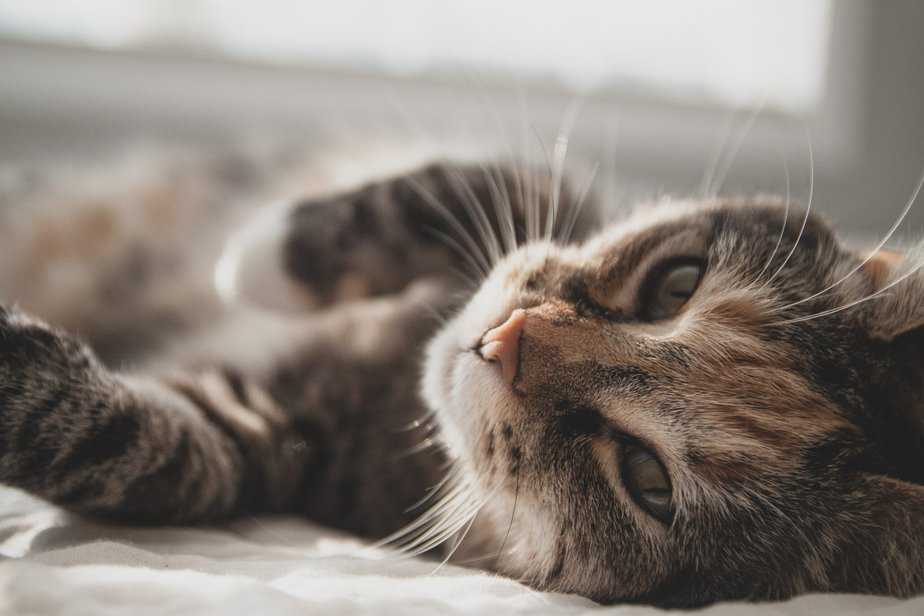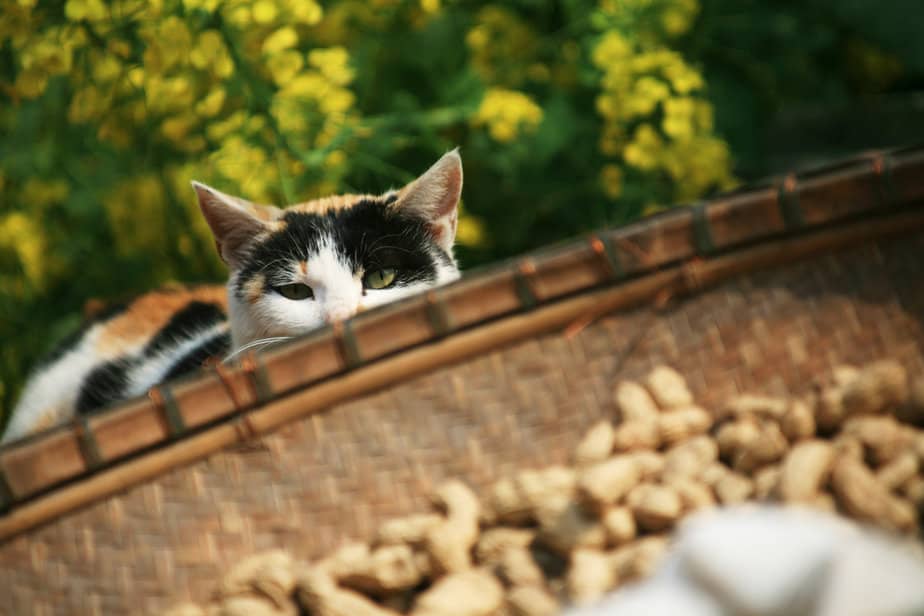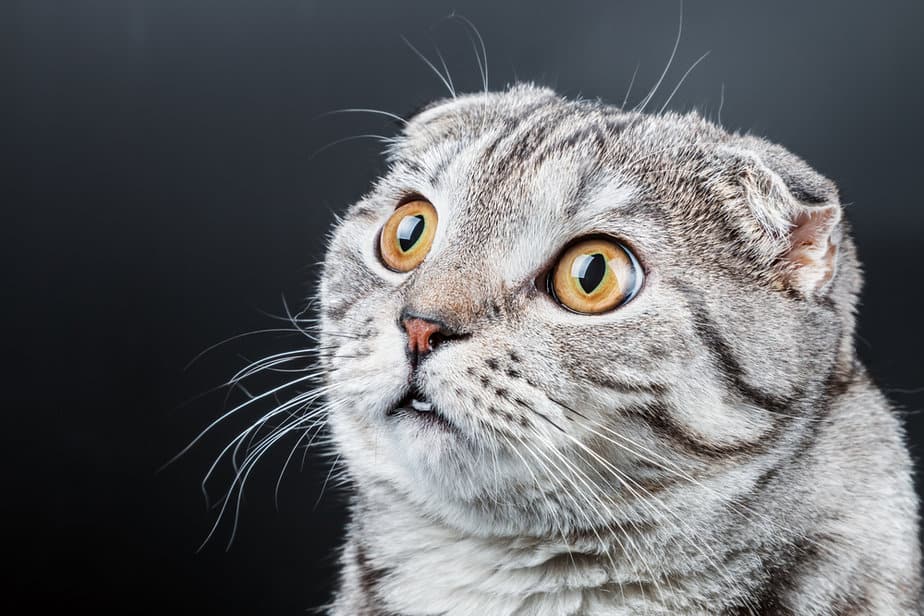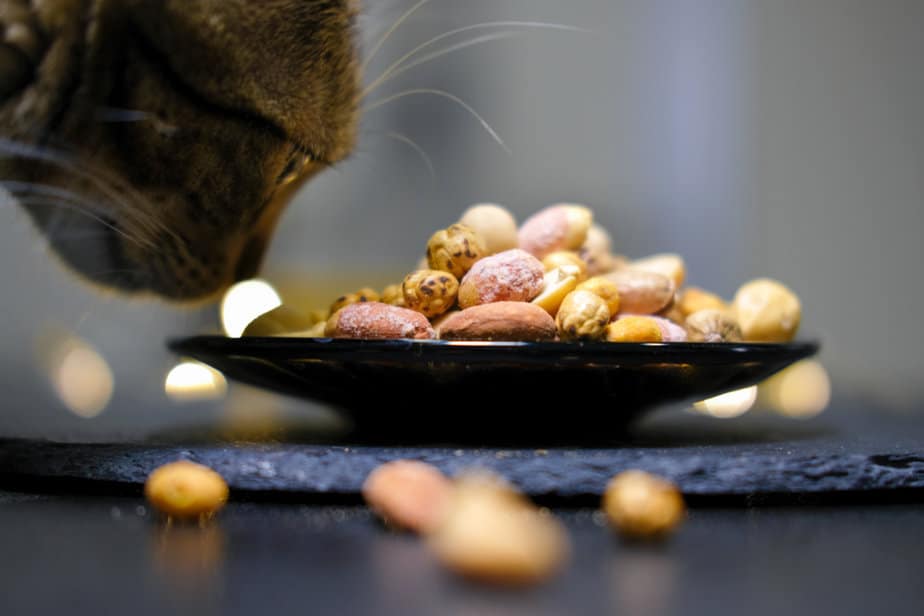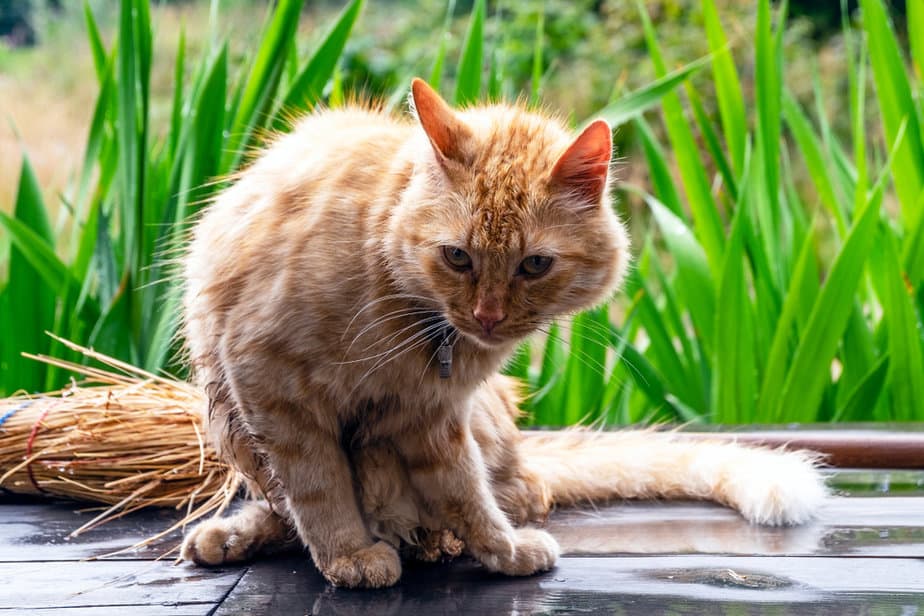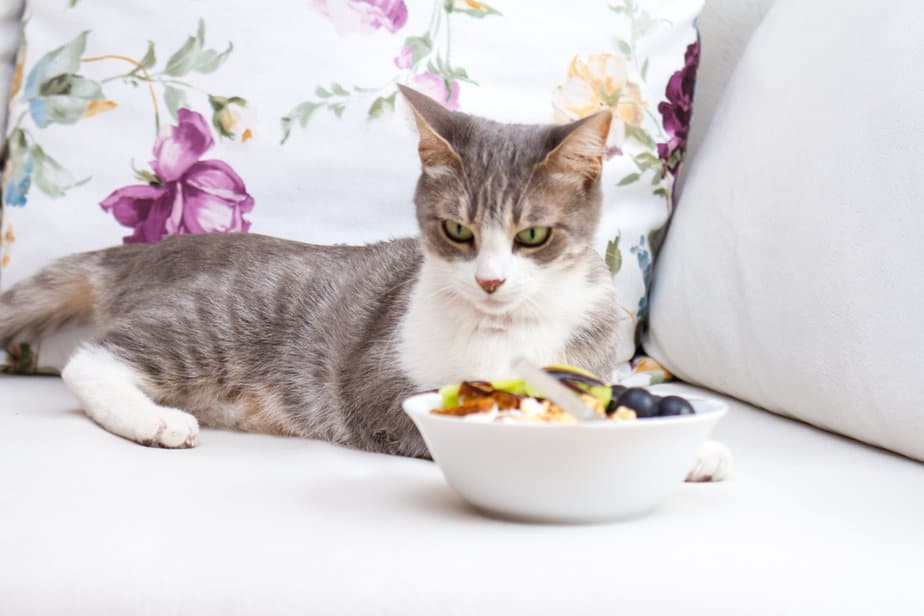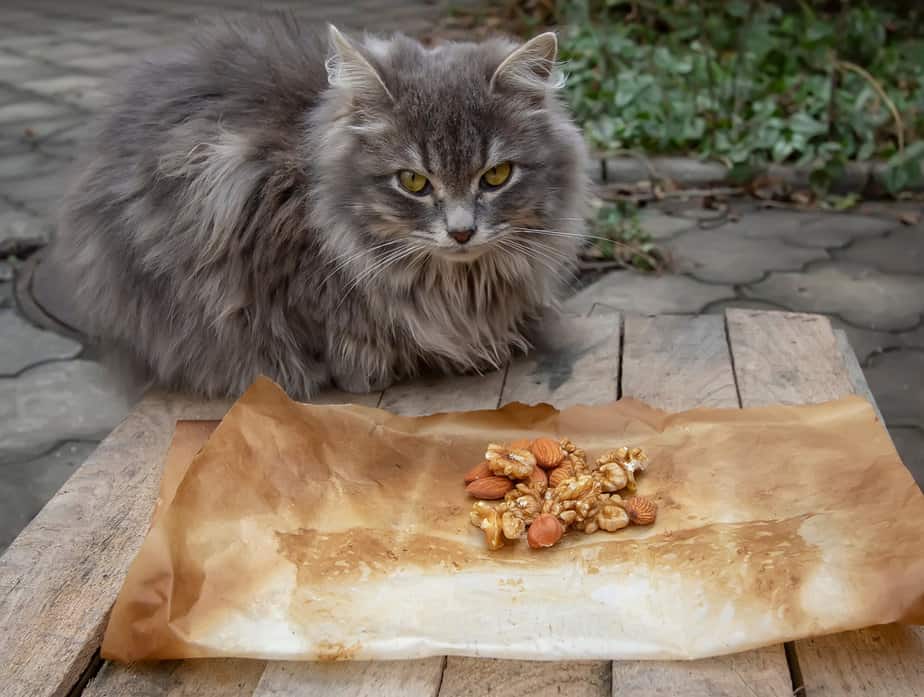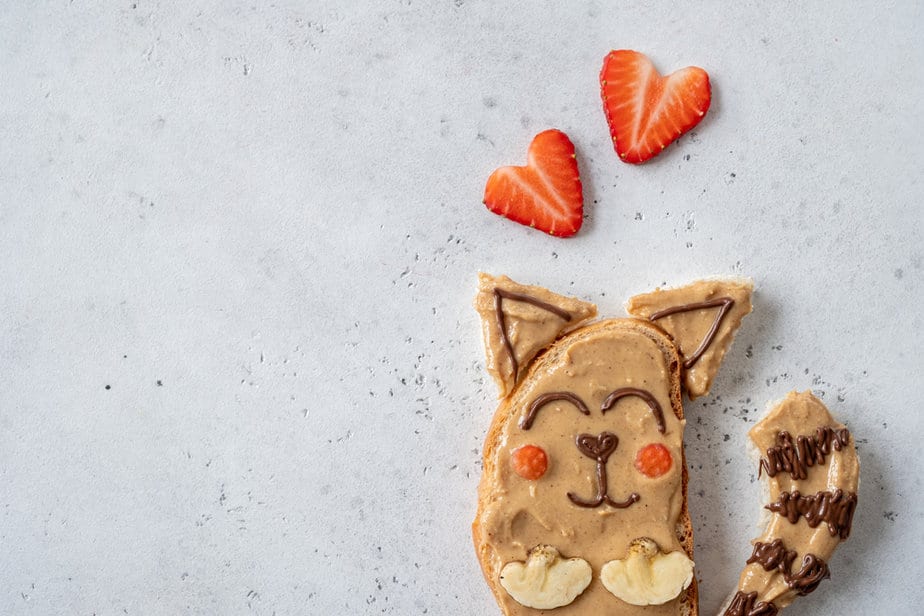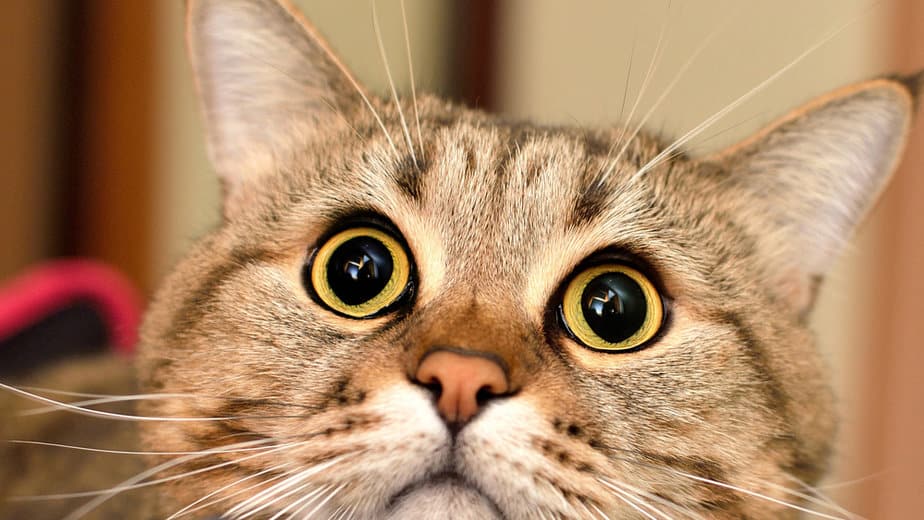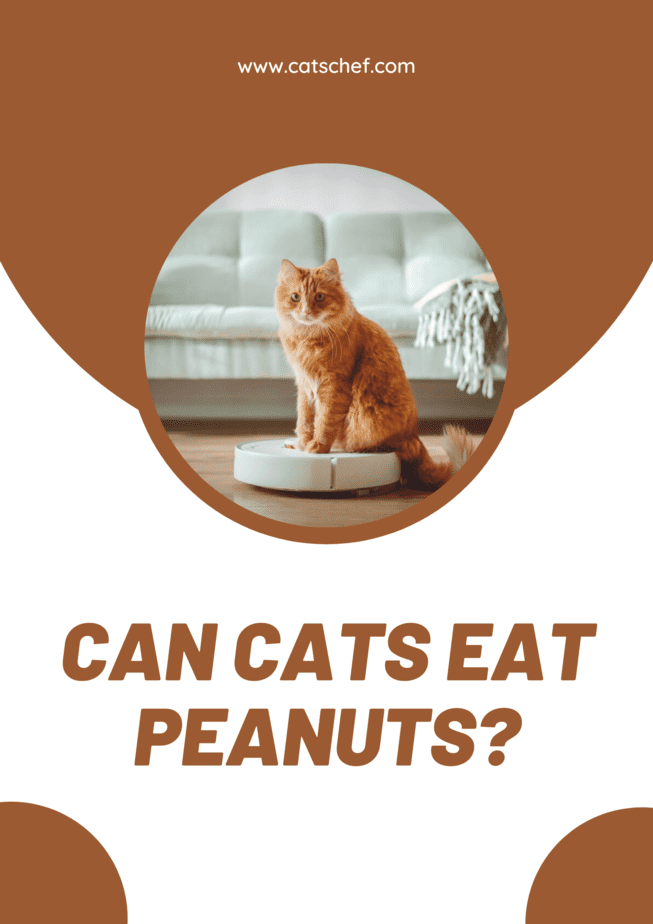📖 Table of Content:
Your four-legged friend seems to be chasing something around the kitchen, running after the rattling sound of the shell, and trying to catch the odd-looking item rebounding off the floor. But, as you try to maintain eye contact, the thought suddenly crosses your mind: “Can cats eat peanuts!?”
You’ve never even thought your curious creature would express any interest in these tasty treats. She’s more of a chicken, turkey, and beef kind of girl. You only notice her ears perking up when you’re opening a can of cat food.
And, you’ve never really bothered asking her about her opinion on peanuts. She’s carnivorous, not so? Well, you made the right call when you decided to look up whether cats can eat peanuts, and rid yourself of any doubts you might have about these shelled legumes.
And no, you didn’t read that wrong. While they do contain the word “nut” in their name, peanuts actually belong to the pea family, which makes them legumes. But, going back to the burning question you came here for…
According to our friends over at the ASPCA (American Society for the Prevention of Cruelty to Animals), peanuts are generally safe for your feline friend. We put the emphasis on “generally” because peanuts do come with a couple of risks you shouldn’t ignore.
What’s the deal with cats and peanuts?
The deal is pretty complicated! First things first, peanuts are rich in protein, fat, and fiber. You might start screaming at the very sight of the word “fat.” But peanuts are actually rich in good, monounsaturated fats – fats that help you lower your cholesterol levels.
They’re also rich in vitamins, minerals, amino acids, and antioxidants including magnesium, folate, vitamin E, copper, and biotin. They’re a dream come true when it comes to delicious, nutritious, Sunday snacks… for humans.
Unfortunately, peanuts don’t do much for your four-legged friend in terms of nutritional and health benefits. Cats are obligate carnivores, which means they require meat, animal protein, and animal-sourced nutrients in their diets to survive and thrive.
While peanuts do have high levels of protein, it’s not the type of protein your cat needs. Don’t get me wrong, she can reap some benefits from vitamins, minerals, and other goodies that come with consuming peanuts, but… there’s always a but when it comes to feeding your cat human foods.
Your cat’s diet should consist of carefully curated cat food and cat treats, with just a couple of shelled, unsalted peanuts every now and then. Trust me, you don’t want your furry friend running to her litter box because you couldn’t say no to her meows of hunger.
So, can cats eat peanuts?
Cats can eat peanuts, but that doesn’t mean they should. As mentioned before, a couple of peanuts here and there shouldn’t cause any harm to your feline friend. Peanuts aren’t toxic to cats, and they don’t necessarily contain anything that might lead to adverse reactions. But…
You shouldn’t make any significant changes to your cat’s diet without consulting with your vet beforehand. You don’t want to overlook certain risks because you’re blinded by your cat’s sheer adorableness.
For instance, salted peanuts pose an issue for your cat’s digestive system because she isn’t supposed to consume that much salt at once. Unshelled peanuts are also a choking hazard because peanut shells are pretty likely to get stuck in your cat’s mouth, throat, or esophagus and cause a blockage.
And don’t even get me started on peanut allergies! Your cat’s health should be your number one priority. Even if she gives you that “please, mommy” look, you have to make sure you have those peanut snacks under control.
So yes, cats can eat peanuts. But, that doesn’t mean you should let your cat scoff down an entire bowl like there’s no tomorrow. Before you make any decisions about this yummy treat, take a look at a couple of risks you’re facing should you feed your cat peanuts.
Why peanuts don’t make for great cat treats
Still not sure about the whole “can cats eat peanuts” thing? Don’t worry, you’re not the first pet parent to question their own sanity upon seeing their four-legged friend munching on peanuts. Let’s just say they’re not the first thing that pops into your mind when you think of suitable cat treats.
While peanuts do contain a bunch of nutritional and health benefits, they aren’t the best thing that can end up in your furry friend’s tummy. Compared to humans, cats are much more likely to experience allergic reactions, digestive issues, and poisoning.
1. Peanut allergies
Yes, you read that right! Your furry friend isn’t exempt from this dangerous condition.
This is why it’s incredibly important for your to consult with your vet before feeding her new foods. It’s the only way you can avoid getting unpleasantly surprised when she runs to her litter box after munching on some of your peanuts.
Other than checking in with your vet, you can also learn to recognize symptoms of an allergic reaction. The first time your cat (or kitten) eats peanuts, she might experience anything ranging from sneezing and swelling to an upset stomach, vomiting, and diarrhea.
Trust me, food allergy symptoms can’t get clearer than that! And if you notice any of them, be sure to contact your vet immediately. Provide your four-legged friend with the necessary supportive care and stay away from your secret peanut stash.
2. Digestive issues
You’re pretty on board with the whole “cats can eat peanuts for the most part” thing, but your cat has a sensitive digestive system. What does that mean in terms of feeding her an occasional peanut treat when she gives you her “mommy, please” look?
Unfortunately, digestive issues aren’t uncommon among cats. Peanuts aren’t a natural part of a cat’s diet, which also means that they aren’t gentle on their digestive tract. Too many peanuts can lead to an array of gastrointestinal diseases, weight gain, obesity, and diabetes.
And don’t even get me started on peanut fat content! Most cat owners see the healthy fats or “monounsaturated fats” label and they think to themselves, “Great! That’s completely healthy for Mrs. McFluff!” But, Mrs. McFluff shouldn’t consume too much fat regardless of the label.
You might think your chonky looks adorable with all that extra fluff. But, you should also remember that weight gain (especially when it’s caused by fat) can lead to obesity and diabetes. These two conditions can significantly impact the quality and longevity of your cat’s life.
Some early symptoms of diabetes include excessive thirst and urination, increased appetite, and weight gain. These symptoms can easily go unnoticed, and that’s why it’s incredibly important to avoid anything that might lead to them (aka, too many peanuts).
3. Salt toxicity
It’s no secret that salt and other seasonings don’t fall under the category of healthy things you can feed your cat. Unfortunately, most foods that contain high salt levels shouldn’t find their way into your four-legged friend’s diet.
Believe it or not, cats are susceptible to something called sodium toxicity or salt poisoning. While salt isn’t toxic to cats, too much of it can cause some serious damage to their health. Take a look at some of the most common symptoms of salt toxicity and draw your own conclusions.
Vomiting, diarrhea, decreased appetite (or even complete loss of appetite), excessive thirst, and urination. When these symptoms are left untreated they can even lead to tremors, seizures, coma, and even death.
Don’t forget, we’re talking about consuming large quantities of salty treats such as salted peanuts. Your cat shouldn’t experience any of these symptoms from a lone stolen peanut, but… Too much salt can cause electrolyte imbalance which then can affect the way your cat’s body functions.
4. Choking hazard
And, of course, we can’t forget about those troublesome peanut shells. We already established that cats can eat plain peanuts as an occasional treat. But, that doesn’t mean that you should let your cat eat peanuts straight out of the bag.
First things first, peanut shells are difficult for your cat to chew. They’re hard and rigid, and they can easily break off and get lodged in between your cat’s teeth. That doesn’t sound like that big of an issue until you remember that they’re also sharp.
As a result, they can cause cuts and irritations to your cat’s mouth, throat, and stomach. Next time your cat decides to go bonkers over some shelled peanuts on the kitchen floor, you might want to remove them before she starts chewing on them.
Last but not least, it’s also not unusual for your cat to swallow an entire peanut (shell and all). While that might seem like a good time to panic and contact every vet and every energy animal center in your vicinity…
The best thing that you can do is to check whether she’s showing any signs of choking. And if she is, try running your finger through the inside of her mouth to check for any rogue peanuts or even doing the cat Heimlich maneuver.
Get your vet on call and follow his advice to the best of your abilities. Your furbaby should be as right as rain and back to her old shenanigans in no time.
How many peanuts are too many for cats?
Cats can eat peanuts, but… How many peanuts are safe for your cat? How many peanuts are we talking about when we say peanuts should be an occasional treat?
Let’s say your four-legged friend can’t resist peanuts. She goes crazy whenever she hears the ever-so-slight crinkle of the bag and she meows in demand for you to let her have a taste. Don’t worry, you don’t have to be the bad guy and say no to her.
One or two peanuts every now and then shouldn’t cause any harm to your cat (unless she has a peanut allergy, of course). These tasty morsels have little to no nutritional benefit to your cat’s diet, so there’s no reason for you to go out of your way to provide her with a boundless peanut supply.
But, make sure you have unsalted peanuts, NOT the salted ones. And make sure to remove the shell before sending them off into your cat’s tummy. Also, always choose raw peanuts rather than those smothered in seasonings and fried in oil. For obvious reasons, of course!
That might sound like a lot of work, but peanuts are known for holding the appropriate amount of moisture that’s ideal for storage. You can purchase a bunch of raw, unsalted, peanuts, remove the shells, store them, and use them whenever you need to.
Can cats eat peanut butter?
You’ve seen a bunch of TikTok videos of dogs losing their minds over peanut butter, and you can’t help but notice that you haven’t seen many cats doing the same thing. That’s because they know that peanut butter might lead to digestive upset resulting in vomiting, diarrhea, and stomach pain.
Peanut butter is certainly worse for your cat than peanuts! Commercially available peanut butter (or even almond butter) typically contains a bunch of ingredients over and above peanuts. Some of these ingredients, like salt, oil, and seasonings, might lead to various digestive and health problems.
Some of the most common symptoms you may notice when your feline friend decides to have a go at your recently purchased jar of PB are vomiting, diarrhea, excessive thirst and urination, and loss of appetite.
These symptoms should go away as soon as she gets the last bit of peanut butter out of her system, unless she’s allergic to peanuts. And if she is allergic to peanuts, you should contact your vet immediately and follow his advice to a T.
But to put it shortly: no, cats cannot eat peanut butter. A lick or two shouldn’t cause any of the symptoms we mentioned beforehand, but it’s better to be safe than sorry.
Can cats eat peanuts covered in chocolate?
No, they absolutely can’t! Peanuts aren’t the best thing your furry friend can put into her mouth. But, the moment you cover them in chocolate, you’re making them straight up toxic. Believe it or not, chocolate is highly poisonous to cats.
How’s that even possible!? Well, chocolate contains a couple of compounds that can cause some serious damage to your cat’s health. Theobromine and caffeine can break down your cat’s red blood cells and cause anemia.
Not only that, but they can also cause an array of gastrointestinal diseases with symptoms ranging from weakness, lethargy, and incoordination, to vomiting and diarrhea. It’s safe to say that you shouldn’t even consider feeding your cat peanuts covered in chocolate.
But don’t worry, your feline friend won’t be too bummed out about that. Cats can’t even taste sweet things because they don’t have the necessary sweetness receptors. They’re only interested in chocolate because they see you drooling whenever you catch sight of a chocolate cake!
So no, cats can’t eat peanuts covered in chocolate.
In a nutshell, can cats eat peanuts?
No pun intended! But yes, cats can eat peanuts. Don’t include them in your cat’s regular diet, but feel free to use them as an occasional treat the moment you get the green light from your vet. Make sure to serve them raw, unsalted, and without the shell because that’s the safest way.
Your mischievous furball might find pleasure playing with peanuts while they’re still cocooned in their shells. She might try gnawing and chewing on them, chasing them around the kitchen, and nudging them with her paws as they rattle away.
Trust me, there are a bunch of things you can do with peanuts as long as you keep a close eye on them. There’s always a possibility your cat might overestimate her chomping abilities and end up choking on a rogue chunk.
Other than that, feel free to allow your cat a peanut or two every now and then. Good luck!
